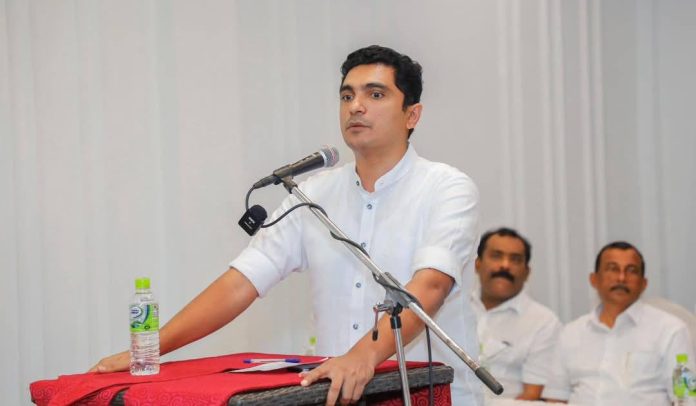Samagi Jana Balawegaya (SJB) MP Prasad Siriwardena launched a scathing critique of the government’s tax policy on electric vehicles (EVs) during the Parliamentary session held yesterday (20), calling it “regressive” and “completely contradictory” to Sri Lanka’s climate goals.
Addressing the House, Siriwardena highlighted a striking revelation made by the Deputy Minister of Finance—that electric vehicles were subjected to a staggering 115% tax over the past seven years. “The public needs to know this,” he said. “It is through this 115% tax that this country’s downfall has been prolonged.”
He further criticised the government’s move to hike EV taxes to 100%, arguing that this signalled a shift in viewing vehicles not as public utilities but as revenue-generating instruments. “Instead of cutting unnecessary government expenditure, they are using vehicle imports to collect revenue,” he charged.
Siriwardena questioned whether future vehicle taxes would vary based on the country of origin, suggesting that such a policy could open the door to arbitrary or discriminatory taxation. “Will vehicles from Bangladesh, Israel, or the US be taxed differently?” he asked, warning that such inconsistencies would further undermine public confidence.
The MP also pointed to the broader energy and environmental implications of current policies. “The main crisis facing our country is the energy crisis. If we want to recover our economy and meet targets for 2025 and beyond, we must reduce energy consumption,” he stressed.
He proposed a shift toward promoting sustainable transport, especially for low-income communities. “Electric three-wheelers, powered by solar panels installed at home, are a realistic solution for rural areas,” Siriwardena suggested. “Instead of promoting this positive change, the government sees vehicles only as economic goods.”
He accused the government of betraying the very people it claims to protect. “You speak so sensitively about the poor to win votes. But under this system, the opportunity for them to afford even a basic vehicle is being denied.”
Calling the EV tax policy “a cycle of hardship,” Siriwardena warned it would deepen economic inequality and delay the country’s transition to a green economy. “We have pledged to become a carbon-neutral country by 2050. But now we’re taxing the very vehicles that can help us get there. That’s a complete contradiction.”
He concluded with a call for urgent policy reorientation. “A government should serve its people by making life easier—not harder. What’s happening today is the exact opposite.”




